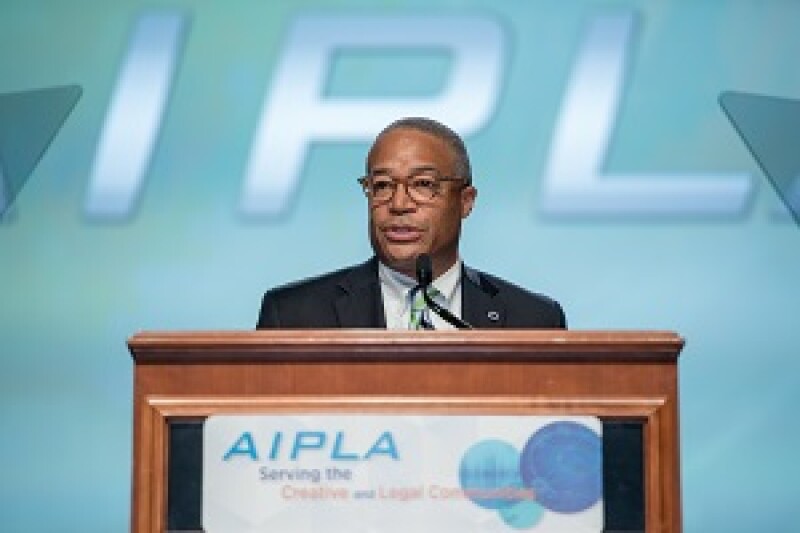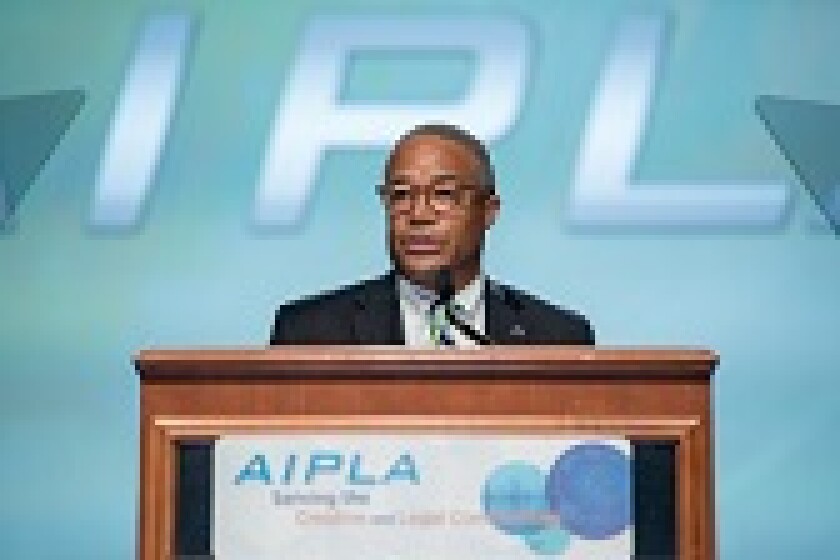What goals do you have for your term as President?
I essentially have two key platforms for the year and then one additional aspirational goal.

The first key platform is internally focused and that is working with the Board, staff, and committees to seek ways to make our work both operationally and strategically more efficient and focused on achievable goals. On the operational side, it is things like sustainable fiscal health, cost effectiveness, and improved communication between Board, staff, and committees. On the strategic side, it is being a little bit more flexible in how we communicate. We need to ensure that we are bringing up information from the committees and from our membership as opposed to top down dictating what AIPLA should be doing. It is about getting better input from our members as to direction and how we want the Association to move.
The second platform is externally focused. My goal is to refocus the Association towards a more proactive thought leadership role in the IP community. Our current posture as an Association often takes on a reactive role. We do a very good job responding to external requests for information, to proposed legislation or to rule making by administrative bodies as examples. That will continue in earnest but I would like to see the Association do more out in front by identifying issues in the law and procedural administrative policies to facilitate constructive change to IP. In other words, the goal is to identify issues and problems, such as how innovation is being impacted or how legislation and rulings by courts are impacting IP. By trying to reach out in this way, and by having an educational push, I think we can accomplish this through our established platforms of advocacy, global outreach, and membership services.
Then, one additional aspirational goal. The Association has done an absolutely wonderful job of integrating and becoming more diverse, at least becoming significantly more gender diverse. There is a Women in IP Law Committee, which is in my view one of the Association's most active and robust committees. It does a great job through mentorship and sponsoring.
As an African American – and I am going to be the second African American to be President of the Association – it is not lost on me that we have not done as good a job as I think we could and should with respect to attorneys of color. So it is my hope that during my year we will be able to make some strides. Frankly, the legal profession, law firms, and corporations at varying levels, don't always do as good a job with respect to advancing the careers, assisting and sponsoring attorneys of color. As such, that's an aspirational goal of mine I hope to achieve.
How will you do that in practice?
We have a Diversity in IP Law Committee that is focused on attorneys of color. We also have the American Intellectual Property Law Education Foundation (AIPLEF), and that Foundation provides scholarships for attorneys or law students of color and gender diverse attorneys who are interested in going into careers in IP. Those are wonderful things, but I think we can crib a bit from Women in IP Law. Some things have been successful for them, and we can try to emulate them.
You said you would like AIPLA to be more proactive. Are there any issues in particular you have in mind for that?
Yes, certainly the Alice decision is an area where there has been a lot of discussion, confusion, and consternation – whatever you want to call it! The subject matter patentability area is really one that I think deserves some leadership. AIPLA is full of thousands and thousands of folks who are already thought leaders. These are people working in the trenches every day for clients or for corporations. They see and know the practical impact of certain decisions like Alice. I think that a broader conversation needs to be had about it. So I am expecting this year for us as an Association to come out with some ideas as to how this 101 issue can be better addressed.










